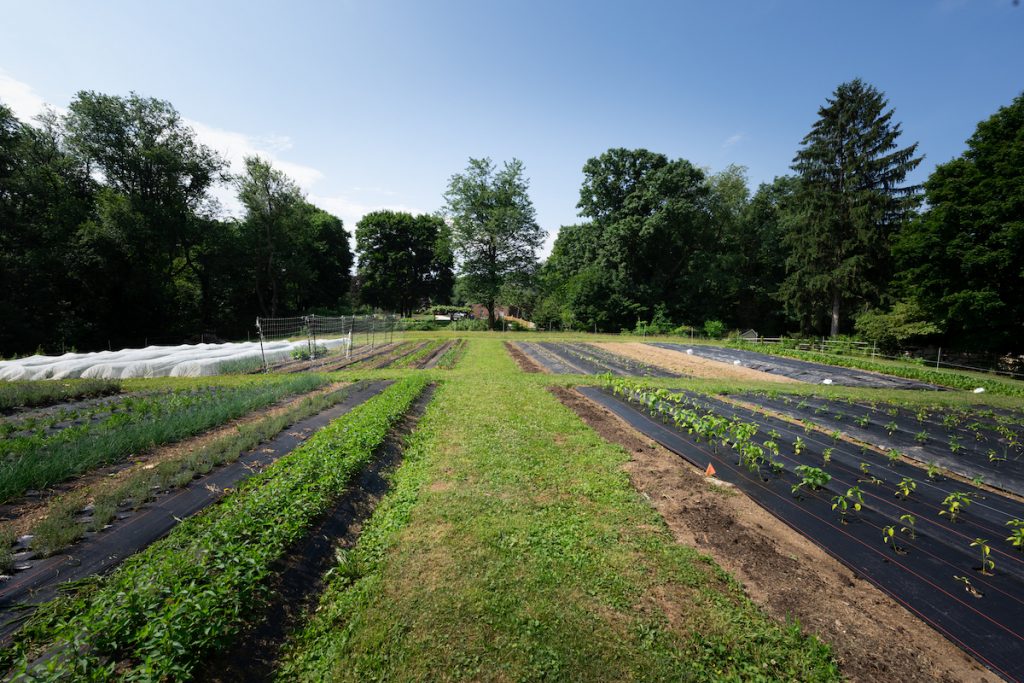Certification Guide
At Harvie, we make it easy to shop your values! Products in our store are tagged with their producing practices, whether that be sustainable, organic, pasture, or a number of other methods.
Curious about what a tag means? Use this guide as your cheat sheet.
IPM
IPM, Integrated Pest Management, is an ecosystem-based strategy that uses a combination of biological control, habitat manipulation, modification of cultural practices, and the use of resistant varieties to prevent damage to crops. IPM provides long-term prevention of pests and diseases, rather than a quick fix that can hurt the environment.
Sustainably Grown
This is a self-assessment that means the farmer or producer practices methods that are sustainable. This could be anything from rotating crops to planting perennials, embracing biodiversity, reusing materials, and more.
Non-GMO
Non-GMO refers to a product that was produced without genetic engineering and does not include any ingredients derived from genetically modified organisms (GMOs).
Certified Naturally Grown
Certified Naturally Grown farmers don’t use any synthetic herbicides, pesticides, fertilizers, or genetically modified organisms. Standards for this certification are based on the highest ideals of the organic movement.
Chemical Free
This self-assessment denotes a product that is free of synthetic chemicals, and only uses natural products or ingredients.
Biodynamics
Biodynamics is a holistic, ecological, and ethical approach to farming, gardening, food, and nutrition. Farmers that practice biodynamics use organic, locally-sourced materials for fertilization, and consider the whole farm — livestock, crops, plants — to be a contained, interrelated system.
Free Range
Raising animals free range means that those animals are able to roam freely outdoors, rather than be confined indoors 24 hours a day.
Pesticide-Free
This means that the farmer growing the crop did not use pesticides to manage pests.
Grass-Fed
Grass-fed refers to animals that have primarily or exclusively been fed non-grain feed for their livelihood. Non-grain can be grass or foraged food.
Hydroponic
Hydroponic growing is the practice of cultivating plants in nutrient-enriched water, sometimes with, but typically without soil. These crops are grown indoors in highly-controlled environments, meaning they can grow in any climate — that’s why these growers have greens all year round!
Organic
Organic farmers address many factors in their growing process, including soil quality, pest and weed control, and the use of additives. They rely on natural substances as much as possible, meaning no use of synthetic fertilizers and pesticides.
RBST-Free
This certification means that cows were not treated with hormones to increase milk production.
Pasture-Raised
Pasture-raised means that animals live on pasture or have access to it, and get the majority of their diet from these managed pastures.
Fair Trade
Fair Trade is a way of doing business that aims to keep small farmers active in the world marketplace. It is a set of practices that are adapted by both producers and buyers, designed to advance a handful of goals, including raising and stabilizing the income of small farmers and workers, equitably distributing the economic gains, opportunities, and risks associated with these products, and promoting labor rights and safe, sustainable farming method.
Wild-Caught
Wild-Caught seafood is caught from a natural habitat (lake, ocean, or river), while farmed seafood is raised in large tanks.

